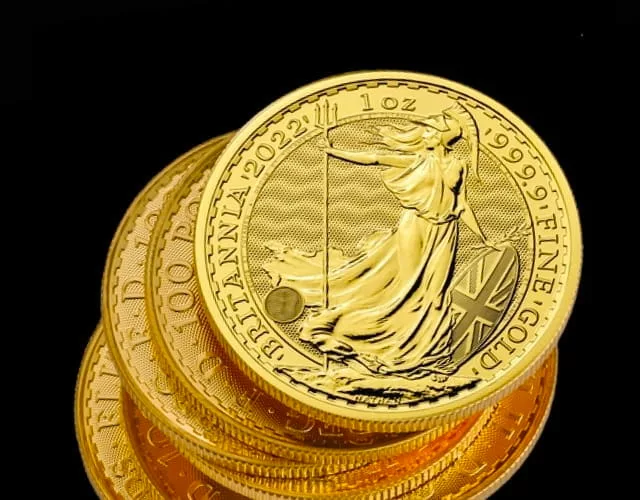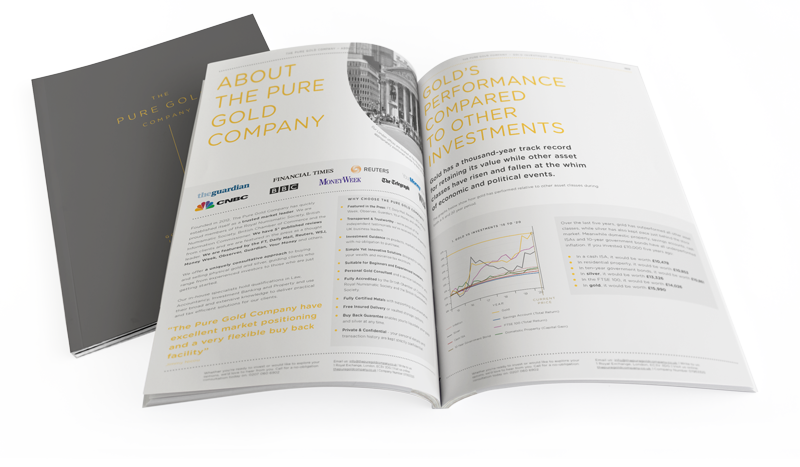Five years ago, we ran a blog on this website called Gold under a Labour government. Back then the political options were a very left of left-wing Jeremy Corbyn or Tory stalwart Boris Johnson, with the polls leaning heavily towards the latter. At the time, we posed the question “What could a Jeremy Corbyn Labour Party election win mean for your investments, from stocks to house prices to gold.”
The volatility of the gold price was a reason given for the sale, but in fact over the long term, gold remains a stable investment. For people looking to protect their investments from the vagaries of the political and economic climate, gold is a good option.
The answer was a fair share of instability and the potential for currency pressure, higher taxes, a flight of capital, a nationalisation programme and an exodus of personal wealth. All in all, it wasn’t a very enticing picture for the economy, investments or assets.
So, what has changed?
The possibility of a Labour government is certainly much greater than it was five years ago. What could a Kier Starmer Labour party election win mean for your investments, from stocks to house prices to gold?
The most obvious difference between then and now is the shift away from socialist left-leaning policies to a more centrist approach. This actually means that many of Labour and Conservative economic policies are not too dissimilar. Labour has positioned itself as a party of stability, appealing to the millions who have been impacted by the political and economic upheaval of the Conservative party. Who could forget the short-lived political leadership of Liz Truss and the economically catastrophic outcome of her mini-budget.
So, what are Labour promising?
Details are thin on the ground but Labour has pledged not to raise income tax or corporation tax on companies, which will come as some relief to businesses. Labour has also made clear it plans to tax private schools and the income of ‘non-doms’ or British residents who claim domicile outside the country. This is unlikely to be the sum total of their tax policies, but like the Conservatives, Labour is keen not to pledge tax rises in order to finance their economic plans. Those plans are to improve public services and revive infrastructure investment, but it’s not clear how they will finance this without filling their coffers with tax dollars first.
The independent Institute for Fiscal Studies summed up the state of the nation succinctly: “Whichever of the main parties forms the next government, it will need to cut spending or raise taxes or it will miss its own fiscal targets.”
At least Labour will be inheriting a far less egregious inflation rate than the Conservatives have had to deal with over the last three years. April’s 2.3% consumer price index was almost a full percentage point down on the 3.2% reported for March, and well below its peak of 11.1% in October 2022.
Discover Gold’s Unique Tax Advantage
Most investments are subject to some form of taxation, but physical gold can be totally free of VAT and capital gains tax.

But the economic outlook is not the picture of health. Growth is still quite stagnant and forecasts are for only minimal growth this year. According to KPMG forecasts “The longer-term outlook is for growth of just 1% this decade.” So, whoever is in Number 10 faces substantial headwinds in an attempt to drive growth and generate the sort of income that can underpin election promises.
What does this mean for investments and gold?
The short answer is not a lot. The markets shrugged off the election announcement with little fanfare, indicating that the likelihood of a Labour government is less important than the inflation data that was published the same day. Without the threat of nationalisation, tax raids and business-unfriendly policies, it’s business as usual for economic indicators. Which is a good thing for the stability of investments. Volatile markets can be corrosive for most stock investments, and a stable bond market is also a boon, especially for the well-balanced portfolio.
What does it mean for gold though?
As a safe-haven asset, volatility can spur gold to new heights, while stability allows other assets to grow. But there are many factors that affect the value of gold and some of them continue to underpin its strength. Gold has risen over 15% in the last six months, peaking in April against a backdrop of higher-for-longer interest rates, geopolitical uncertainty and central bank buying. While this stellar growth has tempered over the last few months, geopolitical tensions remain, interest rate cuts are still only ‘on the horizon’, and there are elections not just in the UK but in many countries around the world, including in the US, which is likely to shift the volatility dial.
While the recent run up in the gold price is a boon to holders of gold, it’s important to remember that gold is a long-term asset, used as a safe-haven investment for good reason, because it usually holds its own when markets fall. It can be an inflation hedge because as a commodity its price usually rises along with other goods, and over millennia it has maintained its value when fiat currencies have become worth less over time. It also has substantial tax advantages.
Political impact on gold prices
This long-term mantra would have stood Labour in good stead if they had heeded it 25 years ago. Labour’s historic management of the country’s gold reserves has not been a stellar example of fiscal policy. The former chancellor of the exchequer Gordon Brown sold over half of the UK’s gold reserves twenty years ago when gold was at a decades-long low. In what is widely seen as a very poor investment decision, between 1999 and 2002 Brown sold 401 tonnes of the UK government’s then 715-tonne store of gold. Since the sale, which averaged around $275 per ounce, the gold price has seen a more than seven-fold increase and is currently valued at over $2,300 an ounce.
UK election impact on investments
The forthcoming election certainly seems like a fait accompli. If as the polls suggest, Labour is elected, then Kier Starmer’s government is unlikely to spook the markets or send the pound into the ground. That doesn’t mean the election won’t impact on investments, gold or other assets, just that we are likely to be in for a smoother ride than if Jeremy Corbyn had pulled a miracle win five years ago. Investing in gold remains an astute option for a diverse portfolio no matter which regime we’re under.


